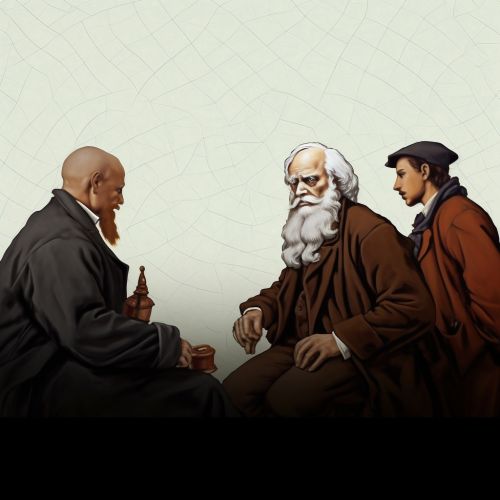Pragmatism
Origins and Development
Pragmatism as a philosophical tradition began in the United States in the 1870s. Its origins are often attributed to the philosophers Charles S. Peirce, William James, and John Dewey. Pragmatism emerged as a reaction against the then-dominant systems of absolutism and empiricism, advocating instead a system of philosophy that incorporated both empirical and rational elements.


Pragmatism argues that the meaning of any concept can be equated to its practical consequences. This idea, known as the Pragmatic Maxim, was first proposed by Peirce and later developed by James and Dewey. The Pragmatic Maxim asserts that the meaning of a concept can be found in the practical effects of its application.
Core Ideas
Pragmatism revolves around the idea that the function of thought is as an instrument or tool for prediction, action, and problem solving. Pragmatists contend that most philosophical topics—such as the nature of knowledge, language, concepts, meaning, belief, and science—are all best viewed in terms of their practical uses and successes.
The pragmatist approach to philosophy tends to be oriented towards practical, real-world applications and consequences. This can be seen in the focus on the role of experience and experimentation in the formation of knowledge, the rejection of the idea that reality is fully knowable, and the view that truth is not absolute but is instead an evolving, dynamic process.
Pragmatism and Truth
One of the most contentious aspects of pragmatism is its approach to truth. For pragmatists, truth is not a static property inherent in propositions, but is instead a property of belief. A belief is true, according to pragmatists, if it is useful to believe. This view contrasts with the traditional philosophical view that truth is a property of propositions that accurately represent reality.
Pragmatists argue that truth is not absolute, but is instead contingent on human practices and the practical consequences of belief. This view of truth has been criticized by some philosophers for its perceived relativism and subjectivism.
Pragmatism in Other Disciplines
Pragmatism has influenced a number of other disciplines, including sociology, psychology, political science, and education. In sociology, for example, pragmatism has influenced the development of symbolic interactionism, a theoretical perspective that emphasizes the role of symbols and meaning in human interaction.
In psychology, pragmatism has influenced the development of functional psychology, a branch of psychology that focuses on the practical applications of psychological research. In political science, pragmatism has influenced the development of theories of democracy and public administration.
Criticisms and Controversies
Pragmatism has been subject to a number of criticisms and controversies. Some philosophers have criticized pragmatism for its perceived relativism and subjectivism, arguing that it undermines the objective nature of truth and knowledge.
Others have criticized pragmatism for its emphasis on practical consequences, arguing that this focus can lead to a neglect of important theoretical considerations. Despite these criticisms, pragmatism remains a significant and influential philosophical tradition.
